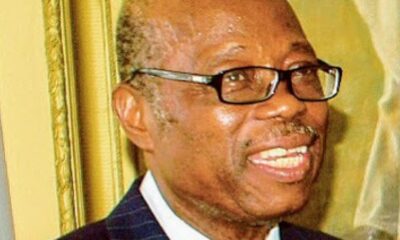News
What you need to know about Prince Bola Ajibola
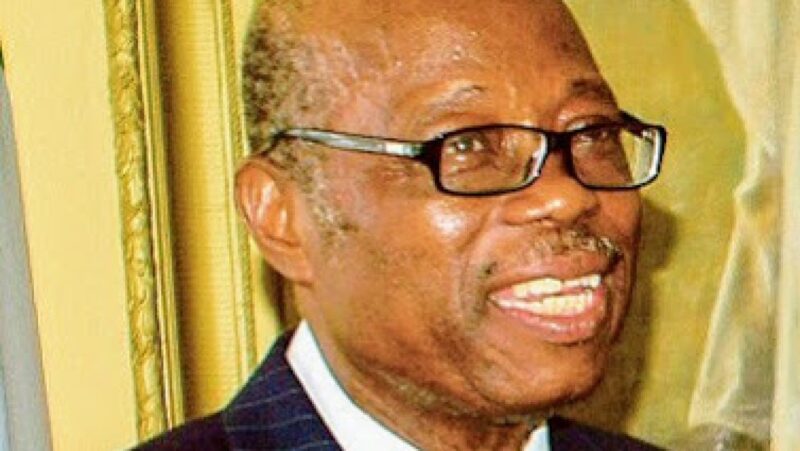
WHO IS JUDGE BOLA AJIBOLA?
A BRIEF PROFILE
His Excellency Judge Bola Abdul Jabbar Ajibola,
(SAN, KBE, D.Sc,D.Litt,FNIALS,FCIArb,CFR)
Born on 22nd March, 1934 to the Owu Royal Family, His Excellency Judge Bola Abdul Jabbar Ajibola attended Owu Baptist Day School, Ago Owu and Baptist Boys High School, Abeokuta, Ogun State for his primary and secondary school education between 1942 and 1955. In 1958, he was enrolled at Holborn College of Law, University of London from where he graduated in 1962 with a degree in law before he was called to the Bar at Lincoln’s Inn on 27 November 1962.
He was President of the Nigerian Bar Association (NBA), 1984-1985 and Attorney-General/Minister of Justice (1985-1991). From there, he moved to the International Court of Justice, Den Hague, Netherlands. After a three-year stint at the World Court in 1994, he further served as Judge Ad Hoc of the World Court from 1994 to 2002. He was appointed Judge of the Constitutional Court of the Federation of Bosnia and Herzegovina. He also served as the Nigeria High Commissioner to the United Kingdom between 1999 and 2002.
He was Chairman of Nigerian delegation to the Nigerian-Cameroon Mixed Commission on the Bakassi Peninsula. Prince Ajibola served as Vice President and later President of the World Bank Administrative Tribunal from 1994 to 2005; President, World Association of the World Jurists and Arbitrator, Ethiopia-Eritrea Boundary Dispute Commission.
READ ALSO:
- JAMB reschedules mock exam, fixes new dates for UTME
- Police arrest man, sons for attacking FRSC officials, burn patrol van
- FRSC hands over N27m found on accident spot to police
A voracious reader, prolific writer, renowned administrator, jurist and arbitrator of global acclaim, Prince Ajibola has attended numerous international conferences and has held international positions and arbitration assignments too numerous to mention here. In his professional career, he has provided outstanding legal consultancy services to several companies including Avon Cosmetics Limited; Masms Solicitors and Co. of London; Exxon, Houston, Texas, USA and Arthur Anderson and Co., London and Lagos.
In recognition of his outstanding imprints on the sands of time, Usmanu Dan Fodiyo University, Sokoto, awarded him Doctor of Literature (D. Litt) in 2003 while the Federal University of Agriculture conferred on him an Honorary Doctor of Agriculture (D. Agric) in 2004. As the Attorney-General and Minister of Justice between 1985 and 1991, he never took home a salary, asking that same should be distributed to the coffers of Federal Government (35%), Nigerian Bar Association (25%) and Charitable/humanitarian organisations (40%). The first Nigerian to be so selfless.
He also founded African Concern, a non-governmental organisation in Lusaka, Zambia in May, 1995 to promote peace, justice and harmony among peoples of Africa in order to eradicate the problems of refugees arising from political conflicts and natural disasters. This, he accomplished in association with the United Nations High Commissioner for Refugees to give succour to refugees in Nigeria, Liberia, Sierra Leone and Rwanda.
Prince Ajibola, an altruist, founded Islamic Mission for Africa in 1996, which gave birth to Crescent University, Abeokuta, a visionary initiative capable of building a new generation of graduates imbued with industry, moral uprightness and diligence as well as the inculcation of spiritual redevelopment in young men and women.
READ ALSO:
- MURIC to JAMB: We accept your apology, act on petitions written against Covenant, Canaanland Universities
- Labour party call for truce as state chairmen insist Abure is National Chairman
- Sad Easter as scores die in boat mishap in Bayelsa
Furthermore, the reputed legal icon and Islam’s ambassador has to his credit other awards and honours among which are: Knight of the Order of British Empire (KBE), 1989; Fellow, Chartered Institute of Arbitration (FCIArb); World Jurist Award 1987; Senior advocate of Nigeria (SAN), 1986; Fellow, Nigerian Institute of Advanced Legal Studies and Commander of the Federal Republic of Nigeria (CFR) among others.
Judge Bola Ajibola is the Founder/Proprietor, Crescent University, Abeokuta. Built on the pedestal of knowledge and faith, the university was established as a private academic institution under the banner of Islamic Mission for Africa(IMA).
It was established in consonance with her doctrine and vision: learning and character. The operating licence from the Federal Government of Nigeria was obtained from National Universities Commission(NUC) on June 9, 2005 by the then Minister of Education, Mrs Chinwe Nora Obaji.
Judge Bola Ajibola founded the university after selling his assets both in Nigeria and abroad to achieve the noble cause of assisting the Nigerian populace in closing the widening gap between attainable potential students’ population and limited space in public universities.Of his vision,accomplishment of Crescent University is the ultimate.
The university which prides itself as Citadel of Academic and Moral Excellence has graduated 12 sets at undergraduate level and 5 sets at Master’s level.Today,many of these products are performing excellently well both in further studies and employment.Some of them who made First Class in their first degree have also clinched Distinction/PhD grades in their MSc programmes abroad and government-owned universities in Nigeria.Only recently,Adedeji Ajayi,who bagged his BSc and MSc degrees from Crescent University got a keenly contested appointment as a senior journalist (Planning) with the British Broadcasting Corporation(BBC) while employers of labour have consistently lauded Crescent University products for good conduct.
This is, in fact, in concord with Judge Ajibola’s mission that “we are not out to produce brilliant beasts but global citizens” who will bring about peaceful coexistence among nations of the world.
WHO IS JUDGE BOLA AJIBOLA
News
Nigeria will stop fuel importation by June – Dangote
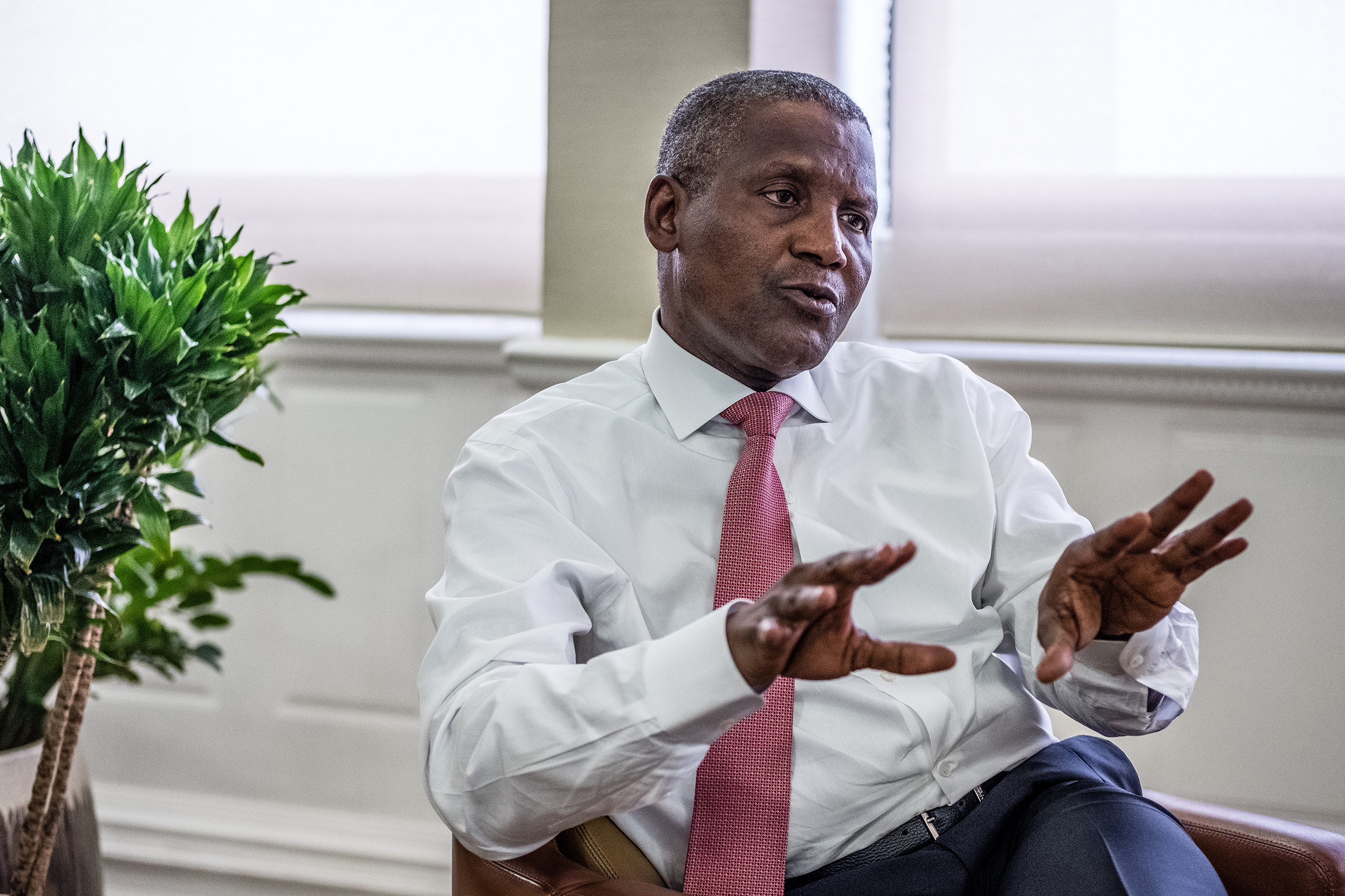
Nigeria will stop fuel importation by June – Dangote
Aliko Dangote, Africa’s richest person, has announced that Nigeria will cease importing petrol by June.
Speaking at the Africa CEO Forum Annual Summit in Kigali, Dangote revealed that his refinery will commence production next month, meeting Nigeria’s petrol needs and eliminating the need for imports.
“Right now, Nigeria has no cause to import anything apart from gasoline and by sometime in June, within the next four or five weeks, Nigeria shouldn’t import anything like gasoline; not one drop of litre,” he said.
The refinery will also produce diesel, aviation fuel, and other essential products, making Africa self-sufficient in these commodities.
READ ALSO:
- Rainstorms kill seven, many others injured
- Olanipekun, Yayale, Elechi, Yusuf Ali, others named higher institutions’ governing council chairmen
- Nearly 10,000 evacuated in Ukraine’s Kharkiv region after Russia attack
With a capacity of 650,000 barrels per day, the refinery will meet the demands of West Africa and beyond.
Dangote emphasized that the refinery will not only focus on petroleum products but also produce polypropylene, polyethylene, base oil, and linear benzyl, raw materials essential for producing detergents and other products.
This will reduce Africa’s reliance on imports and make the continent self-sufficient in these critical products.
Dangote expressed his optimism that within three to four years, Africa will no longer need to import fertilizers, as his refinery will produce urea, potash, and phosphate, meeting the continent’s needs.
The refinery’s second phase is set to begin early next year, further expanding its operations and impact on Africa’s energy landscape.
Nigeria will stop fuel importation by June – Dangote
News
Olanipekun, Yayale, Elechi, Yusuf Ali, others named higher institutions’ governing council chairmen
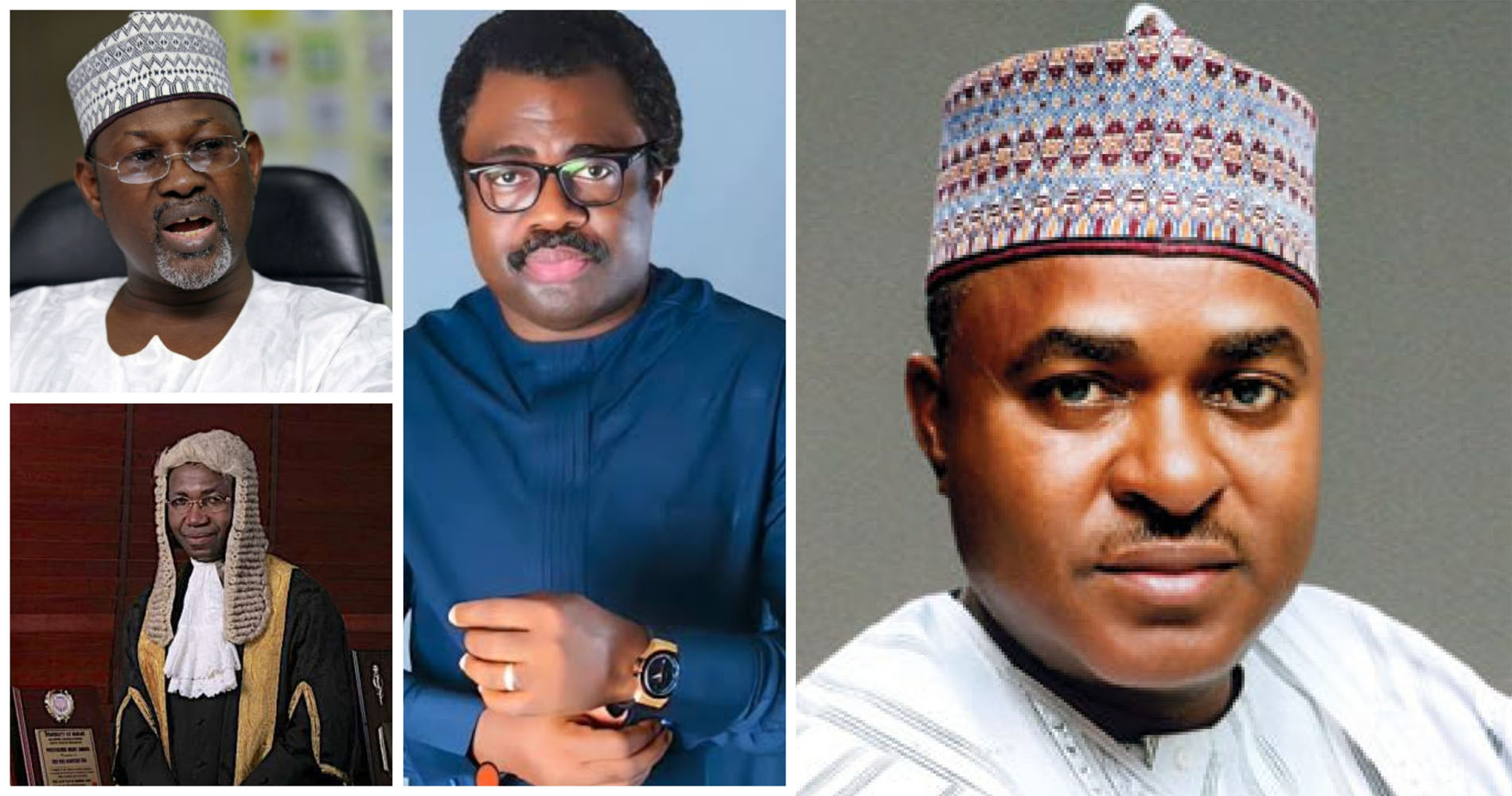
Olanipekun, Yayale, Elechi, Yusuf Ali, others named higher institutions’ governing council chairmen
President Bola Tinubu’s administration has unveiled a list of appointees to the governing councils of 111 federal universities, polytechnics, and colleges of education.
Notable figures among the appointees include former Independent National Electoral Commission (INEC) Chairman, Attahiru Jega; Senior Advocates of Nigeria Wole Olanipekun, former Bauchi governor, Isa Yuguda, and Yusuf Alli.
Others are former National Universities Commission Executive Secretary, Peter Okebukola; and labour activist, Issa Aremu. The individuals have been selected to lead the councils of various academic institutions across the country.
The announcement follows a recent ultimatum issued by the Academic Staff Union of Universities (ASUU), which demanded the Nigerian government address issues such as the alleged illegal dissolution of university governing councils and the continued use of the Integrated Payroll and Personnel Information System (IPPIS) for salary payments.
The Federal Ministry of Education responded by assuring that these concerns were being handled and that the list of council members would be released soon.
The appointments, signed by Permanent Secretary Didi Walson-Jack of the Federal Ministry of Education, include five representatives each for 50 universities, 37 polytechnics, and 24 colleges of education.
READ ALSO:
- Nearly 10,000 evacuated in Ukraine’s Kharkiv region after Russia attack
- Police inspector dismissed over ‘N29.8m theft’, three other officers demoted
- Russia could increase Ukraine attacks, says Zelensky
Specifically, Attahiru Jega has been appointed Chairman of the Governing Council of Usmanu Danfodio University, Sokoto. Wole Olanipekun will chair the University of Lagos, while Yusuf Alli takes on the Federal University of Agriculture, Abeokuta.
Peter Okebukola will lead the University of Port Harcourt, and Issa Aremu will head the Federal College of Education (Technical) in Keana, Nasarawa State while Yuguda will chair the National Open University of Nigeria (NOUN).
Furthermore, former Senator Joy Emordi will lead Alvan Ikoku Federal University of Education in Owerri; and former Secretary to the Government of the Federation, Yayale Ahmed, will head the council of Ahmadu Bello University in Zaria.
Adamu Rasheed, the immediate past Executive Secretary of the NUC, has been appointed to the Federal University of Health Sciences, Otukpo in Benue State.
The new governing council members are scheduled for inauguration and a retreat on May 30 and 31 at the National Universities Commission’s headquarters in Abuja.
In June 2023, President Tinubu dissolved the governing councils of several key government agencies and higher education institutions, a move that sparked criticism from various stakeholders. They argued that the University Miscellaneous Act grants universities and their councils autonomy to self-regulate.
Olanipekun, Yayale, Elechi, Yusuf Ali, others named higher institutions’ governing council chairmen
News
UK lawmaker lauds EFCC, says Africa underestimates its strength
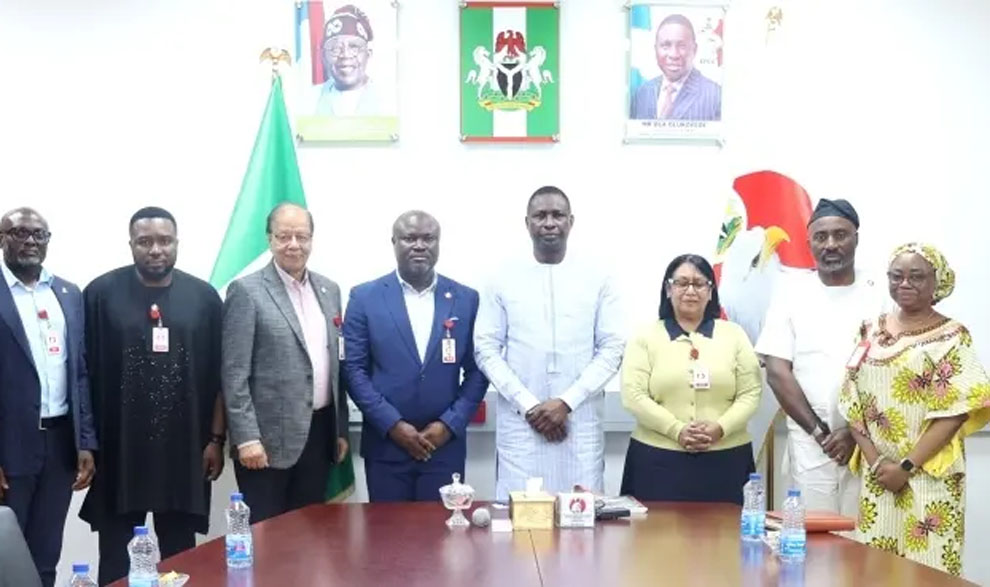
UK lawmaker lauds EFCC, says Africa underestimates its strength
In a significant boost to Nigeria’s anti-corruption efforts, the Economic and Financial Crimes Commission (EFCC) has received international recognition for its tireless work in tackling corruption.
Baroness Verma Sandy of Leicester, a member of the United Kingdom’s House of Lords, has commended the EFCC for its dedication to fighting corruption and promoting good governance in Nigeria.
During a visit to the EFCC headquarters in Abuja on Friday, Baroness Verma Sandy praised the Commission’s new leadership under Executive Chairman, Mr. Ola Olukoyede, for repositioning the organization on the path of professionalism and effectiveness.
She expressed confidence that the EFCC’s efforts would help change the global perception of Africa and build new confidence in the continent.
The Baroness, who led a six-man delegation of the UK-based African Leadership Organisation, acknowledged the EFCC’s efforts in shaping better narratives for Nigeria and praised the Commission’s innovative approaches to tackling corruption.
She emphasized the importance of international collaboration in the fight against corruption and encouraged the EFCC to continue its good work.
Sandy said: “We are so glad to be here. It is important having this organization led by somebody who has brought incredible positive changes to the country. And I want to thank all of your colleagues here for engaging with us today. I believe passionately on the strength of the African Continent. I am not connected at all to Africa, but I have been a champion for a continent that has under-estimated its own strength but has got so much to offer the world. And I think your organization will help change the perceptions and build new confidence. So, I am so pleased and honoured to be here.”
READ ALSO:
- We’re impressed by Tinubu’s security strategies – UK Govt
- Don’t involve Bello’s children in corruption fight, rights group tells EFCC
- Only my party can stop me from contesting 2027 presidential election – Atiku
EFCC Chairman, Mr. Olukoyede, thanked the Baroness and her delegation for identifying with the Commission and acknowledging its efforts.
He reiterated the EFCC’s commitment to tackling corruption and promoting good governance, emphasizing that corruption is a major obstacle to Africa’s development.
He highlighted the Commission’s new focus on prevention and addressing systemic issues that enable corruption, as well as its efforts to stimulate economic growth and prevent foreign exchange sharp practices.
-

 Business3 days ago
Business3 days agoDollar crashes against Naira at official market
-

 News2 days ago
News2 days agoUsing pre-registered SIM card may land you in jail, NCC warns
-
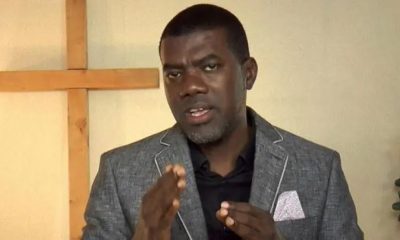
 News2 days ago
News2 days agoWike, Fubara are ego-driven, crude – Reno Omokri
-

 metro3 days ago
metro3 days agoThree police officers sentenced to life imprisonment in Anambra
-

 metro1 day ago
metro1 day agoFire guts new NNPCL tank farm in Lagos
-

 International2 days ago
International2 days agoUK says it’s developing radio frequency to blast out drones
-

 News2 days ago
News2 days agoUpdated: Reps condemn assault on Nasarawa female doctor by patient family
-

 News2 days ago
News2 days agoPolice grill Osun monarch, Ataoja of Osogbo, over petition







